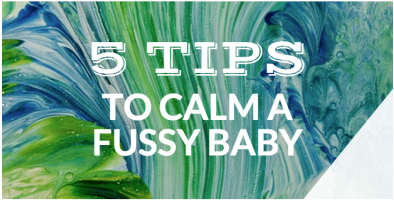
Despite being a new parent, you actually have everything you need to meet your baby’s needs. It’s all about figuring out what baby is trying to tell us.
I use a list of 5 main issues that baby could be communicating.
Start at the top of the list and work your way down. By the time you reach the bottom of the list and begin at the top again you will likely have found the source of the discomfort.
1. Hungry
2. Tired
3. General discomfort i.e diaper change, cold, hot, position change etc.
4. Tummy trouble i.e gas pains, burp etc.
5. Connection
I want to expand a little more on ‘Connection’. It’s really common for parents to focus on the physical needs of a baby and make sure those are all covered i.e clean diaper, well fed etc. but it’s good to think about ‘connection’ as a physical need too. Sometimes babies just want to be held, being in a parent’s arms is the safest place in the world, it helps them regulate their emotions, their temperature and so much more. Some babies need more contact than others so be patient with yourself and baby as you figure out what your baby needs from you.

If your little one struggles with gas, colic or other fussy times it’s great to stock up your tool kit so you have a variety of supports to reach for. Your tool kit can be an actual physical bag of tricks or a figurative tool kit. Items you might have in your kit are:
· Homeopathic remedies can be very effective for all ailments ie. gas pain, teething, general fussiness
· NoseFrida or bulb syringe to clear nose (needs to be wet mucus)
· Saline drops for clearing nose/stuffiness
· Rescue remedy is wonderful for both parents and babies
· Acetaminophen for high fevers
· Baby carrier/wrap- wearing your baby provides constant contact
· Eucalyptus type oil or balm (Olbas Oil, Breathe)
· Take a walk- bundle up, fresh air recalibrates all of us
· Comfort sucking- pacifier (if breastfeeding is established), clean finger or nursing (be willing to nurse A LOT)
· Sounds; singing, music, running water or white noise
· Vacuum cleaner, car ride, hair dryer
· Show them the fire in a fireplace or any flame
· Hot bath (lavender oil can be calming) bathing with your baby can be soothing for both of you
· Steam shower- use essential oils in the hot shower creating a sauna
· Infant massage, foot massage in particular can soothe a fussy tummy

I’m a big fan of Dr. Harvey Karp’s 5 S’s. He shares some great tools with parents. Dr. Karp’s Five “S’s” For Calming A Fussy Baby:
- Swaddling
- Side/stomach position
- Swinging
- Shushing
- Sucking

Babies by design are incredibly influenced by their parent’s emotional states. In fact babies think that they are part of you and don’t discover their own autonomy for another year and half or more. As you can imagine you and your feelings impact baby. If baby is fussy;
· Consider your own emotional state i.e. stress, anxiety, fear, anger which might impact baby’s unsettled feelings.
· Create a peaceful environment, calm music and soft lighting to keep your own nerves calm so you can regulate yourself.
· Consider mother’s diet if breastfeeding; eliminate bothersome foods. If formula feeding consider changing to a different formula.

If you are concerned about your baby’s health follow your instincts and ask for help. Here are some general guidelines for little ones.
- Changes in appetite. If your baby refuses several feedings in a row or eats poorly, contact the doctor.
- Changes in mood. If your baby is lethargic or unusually difficult to rouse, tell the doctor right away. Also let the doctor know if your baby is persistently irritable or has inconsolable crying jags.
- Tender navel or penis. Contact the doctor if your baby's umbilical area or penis suddenly becomes red or starts to ooze or bleed.
- Fever. Mild fevers are common and usually harmless, but keep an eye on the thermometer. If your baby is younger than age 3 months, contact the doctor for any fever. If your baby is age 3 to 6 months and has a temperature up to 102 F (38.9 C) and seems unusually irritable, lethargic or uncomfortable, or has a temperature higher than 102 F (38.9 C), contact the doctor. Also, if your baby is age 6 to 24 months and has a temperature higher than 102 F (38.9 C) that lasts longer than one day but shows no other signs or symptoms, contact the doctor.
- Diarrhea: if your baby's stools are especially loose or watery for more than a day.
- Vomiting. Occasional spitting up is normal. Call the Doctor if your baby vomits forcefully after feedings, vomits for more than 12 hours, or also has diarrhea or a fever.
- Dehydration. Contact the doctor if your baby doesn't wet a diaper for six hours or longer, the soft spot on top of your baby's head seems to sink, or your baby cries without tears or has a dry mouth without saliva.
- Colds. Contact the doctor if you baby’s cold lasts longer than two weeks, or is accompanied by severe coughing.
- Ear trouble. Contact the doctor if your baby doesn't respond normally to sounds or if they grab their ears and cry ( not the usual tired ear pull).
- Rash. Contact the doctor if a rash covers a large area, appears infected or if your baby suddenly develops an unexplained rash — especially if the rash is accompanied by a fever, sore throat or diarrhea.
- Eye discharge. If one or both eyes are pink, red or leaking mucus, contact the doctor.
This too shall pass
It’s so hard when emotions are running high with an upset baby in your arms to remember that this too shall pass, but it’s the truth. The wonderful part about little ones is that they grow and change so quickly that whatever is hard this week will likely have passed by the next. And remember, you have everything you need to meet your baby’s needs, trust yourself - you know your baby better than anyone else!


 RSS Feed
RSS Feed